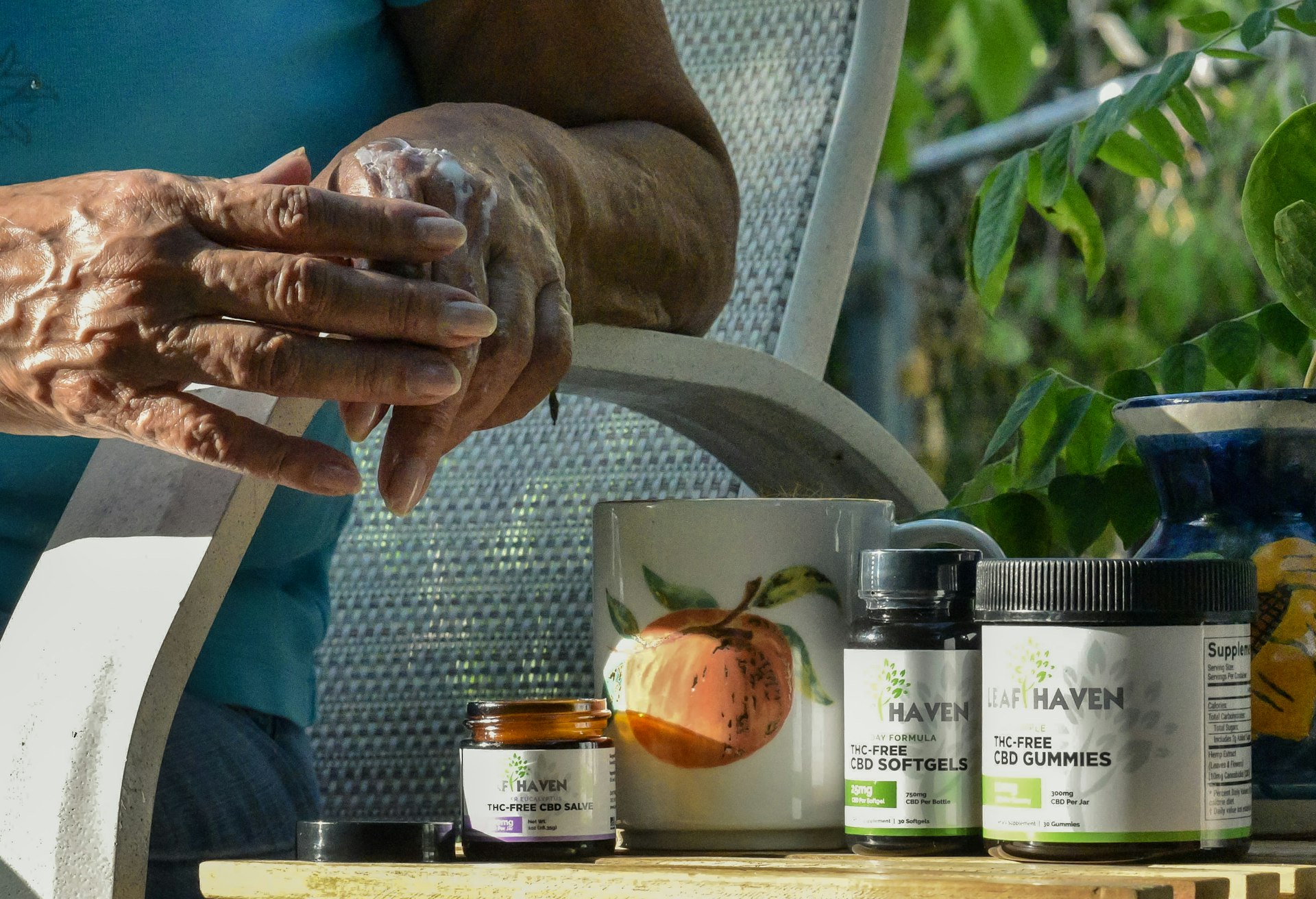How Lifestyle Medicine Drives Disease Prevention and Lasting Health

Photo by julien Tromeur on Unsplash
Introduction: The Impact of Lifestyle Choices on Health
Modern research confirms that the way we live-what we eat, how much we move, how we manage stress, and our social connections-has a profound influence on our long-term health. Chronic diseases such as heart disease, type 2 diabetes, and many cancers are increasingly linked to lifestyle factors. Lifestyle medicine is a medical specialty that uses evidence-based interventions to target the root causes of these conditions, not just their symptoms. This approach empowers individuals to take control of their health, prevent illness, and sometimes even reverse existing disease [1] [5] .
What Is Lifestyle Medicine?
Lifestyle medicine is defined as an evidence-based field that uses therapeutic lifestyle interventions as the primary method to treat, reverse, and prevent chronic diseases. Rather than relying solely on prescription medications or surgeries, lifestyle medicine practitioners partner with patients to make sustainable changes in daily habits. According to the American College of Lifestyle Medicine, these interventions are grounded in six core pillars: whole-food, plant-predominant nutrition; regular physical activity; restorative sleep; effective stress management; avoidance of risky substances; and positive social connections [4] [5] .
The Six Pillars of Lifestyle Medicine: Foundations for Disease Prevention
Each pillar addresses a key area that directly influences disease risk and overall health. Here’s how they work in practice:
- Whole-Food, Plant-Predominant Nutrition: Diets rich in vegetables, fruits, whole grains, beans, nuts, and seeds have been shown to lower blood pressure, reduce cholesterol, and decrease inflammation. Reducing processed foods, added sugars, and animal fats supports long-term cardiovascular and metabolic health [4] [3] .
- Regular Physical Activity: Consistent movement-such as brisk walking, cycling, or swimming-improves heart health, strengthens muscles and bones, boosts mood, and helps control body weight. The goal is to engage in at least 150 minutes of moderate-intensity activity per week [1] .
- Restorative Sleep: Adults generally need 7-9 hours of quality sleep nightly. Sleep supports immune function, brain health, and hormone balance. Poor sleep increases risk for obesity, diabetes, and heart disease.
- Stress Management: Chronic stress negatively affects nearly every system in the body. Techniques such as mindfulness, deep breathing, yoga, and counseling can help reduce stress, lower blood pressure, and support better mental health.
- Avoidance of Risky Substances: Eliminating tobacco, limiting alcohol, and avoiding other harmful substances are essential steps for disease prevention. Smoking cessation alone can dramatically reduce the risk for many cancers and heart disease [1] .
- Positive Social Connections: Maintaining supportive relationships is linked to better mental health, stronger immune responses, and longer life expectancy. Loneliness and isolation are recognized risk factors for disease.
Evidence and Real-World Impact
Scientific studies demonstrate that adopting these lifestyle changes can have a dramatic impact on health outcomes. For example, one prospective study of over 23,000 participants found that following four simple guidelines-no tobacco use, regular exercise, maintaining a healthy body weight, and eating a wholesome diet-resulted in a 78% lower risk of developing chronic diseases over eight years. Within this group, the risk of type 2 diabetes dropped by 93%, heart attack risk by 81%, and cancer risk by 36% [1] . Other data suggest that behavior changes could prevent up to 80% of heart disease, stroke, and type 2 diabetes, and about 40% of cancers [2] .
Step-by-Step Guidance to Access Lifestyle Medicine
Implementing lifestyle medicine starts with small, manageable changes. Here are steps you can take:
- Seek Professional Guidance: Consult your primary care provider about incorporating lifestyle medicine into your care plan. Many clinics and health systems now offer specialized lifestyle medicine services. If you are unsure where to begin, ask for a referral to a provider certified by the American College of Lifestyle Medicine.
- Set Realistic, Achievable Goals: Work with your healthcare team to identify specific, measurable health goals. For example, you might aim to add one serving of vegetables to your daily meals, increase your weekly step count, or establish a regular bedtime.
- Leverage Community Resources: Many organizations and local clinics offer group classes, educational workshops, or peer support for nutrition, physical activity, and stress management. Community health centers and hospitals may provide these services at low or no cost. To find programs near you, search for “lifestyle medicine services” in your city or visit the American College of Lifestyle Medicine’s website for a provider directory [4] .
- Monitor Progress and Adjust: Track your habits and health metrics with journals, apps, or regular check-ins with your healthcare provider. Adjust strategies as needed to stay on track.
- Address Barriers: If you encounter obstacles such as lack of time, motivation, or resources, discuss alternatives with your provider. Virtual health coaching, online resources, or small group support may offer practical solutions.
Integrating Lifestyle Medicine with Conventional Care
Lifestyle medicine does not replace all traditional medical treatments. Instead, it complements conventional care by addressing the underlying causes of disease. For example, someone with high blood pressure may still require medication, but by improving diet, increasing activity, and reducing stress, they may be able to lower medication doses or eliminate the need altogether over time [3] .
Coordinating lifestyle changes with your existing medical care is essential. Patients are encouraged to keep all healthcare providers informed about their goals and progress. This team-based approach helps ensure safe, effective, and personalized care.

Photo by Towfiqu barbhuiya on Unsplash
Overcoming Challenges and Finding Support
Many people struggle to make and maintain lifestyle changes due to busy schedules, family obligations, or conflicting information. Here are ways to address common challenges:
- Start Small: Focus on one or two changes at a time. Success in small areas builds confidence for bigger changes.
- Build a Support Network: Involve friends, family, or coworkers in your health journey. Social support increases accountability and motivation.
- Use Technology: Wearable devices, health apps, and online communities can help you track progress and stay motivated.
- Consult Certified Professionals: Look for clinicians with training in lifestyle medicine. To verify credentials, visit the American College of Lifestyle Medicine’s official website or ask your healthcare provider for recommendations [4] .
- Stay Informed: Reliable information is key. Use resources from medical institutions, universities, and recognized organizations. Avoid unverified websites or unsupported claims.
Alternative Pathways to Disease Prevention
While lifestyle medicine is a powerful tool, alternative and complementary approaches such as integrative medicine, functional medicine, and traditional public health interventions may also contribute to disease prevention. These fields often overlap and can be combined to suit individual needs. If you are interested in exploring these options, start by discussing them with your primary care provider and researching reputable organizations or academic centers specializing in these disciplines.
Taking the Next Step: How to Get Started
If you are ready to make lifestyle changes to prevent disease, you can:
- Schedule a checkup with your current provider and discuss your interest in lifestyle medicine.
- Search for certified lifestyle medicine practitioners in your area by visiting the American College of Lifestyle Medicine at https://lifestylemedicine.org .
- Contact your local hospital or community health center and ask about wellness programs, nutrition counseling, or chronic disease prevention classes.
- Use search terms like “lifestyle medicine program near me,” “plant-based doctor,” or “evidence-based health coaching” in reputable search engines to locate services.
- For more information on specific chronic disease prevention strategies, consult major medical institutions such as the Mayo Clinic, Cleveland Clinic, or your nearest academic health center.
Key Takeaways
Lifestyle medicine offers a transformative, evidence-based approach to disease prevention. By addressing nutrition, movement, sleep, stress, substance use, and social support, individuals can dramatically reduce their risk for chronic illness and improve quality of life. While challenges exist, stepwise changes, professional guidance, and community resources make it possible to build healthy habits that last. Start your journey by consulting with a healthcare provider, researching local resources, and setting achievable goals.
References
- [1] Bodai, B.I. & Nakata, T.E. (2017). Lifestyle Medicine: A Brief Review of Its Dramatic Impact on Health and Survival.
- [2] UT Southwestern Medical Center (2021). Lifestyle Medicine: How it could save your life.
- [3] UCF Health. What is Lifestyle Medicine and How Can it Benefit You?
- [4] American College of Lifestyle Medicine. Official Website.
- [5] American College of Lifestyle Medicine. What is Lifestyle Medicine?
MORE FROM weirdsearch.com













